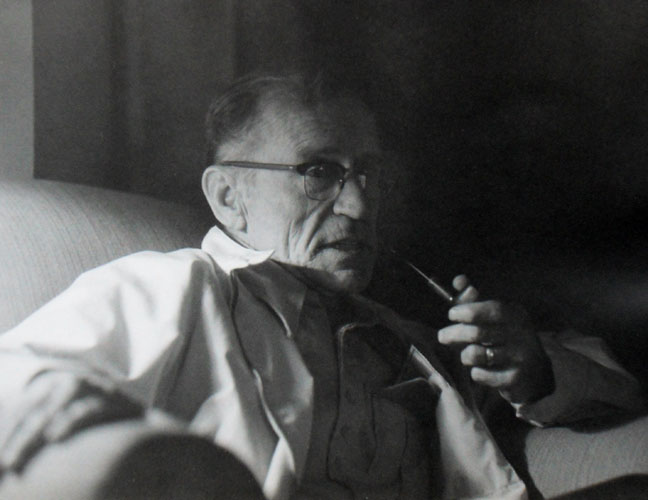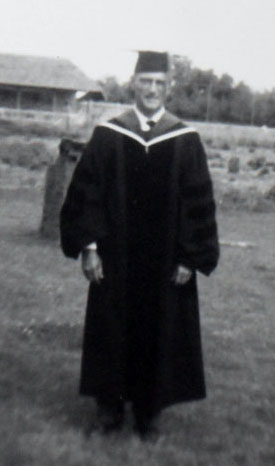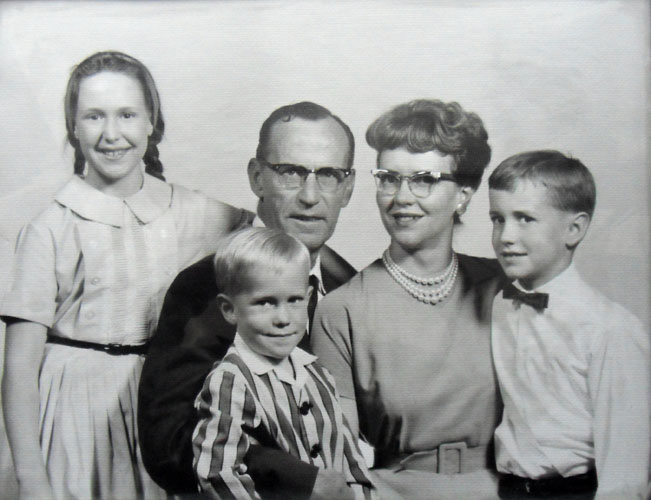

 John Fagg Foster was born September 6, 1907, in Blue Ridge, Texas.
He had two sisters, Opal Dale Powell and Ruth Van Arsdale, and one brother, Paul Foster.
His father, William Thomas Foster, was a real estate developer and educator,
and his mother, Mary Ann Fagg, was a housewife. All of his life he was called Fagg,
which was his motherís maiden name. Professionally he was known as J. Fagg Foster.
John Fagg Foster was born September 6, 1907, in Blue Ridge, Texas.
He had two sisters, Opal Dale Powell and Ruth Van Arsdale, and one brother, Paul Foster.
His father, William Thomas Foster, was a real estate developer and educator,
and his mother, Mary Ann Fagg, was a housewife. All of his life he was called Fagg,
which was his motherís maiden name. Professionally he was known as J. Fagg Foster.
Foster attended elementary and secondary schools in Dallas. He was awarded a Bachelor of Arts degree in 1935 from East Texas State College and a Master of Education degree in 1938 from the University of Texas at Austin, from which he also earned a Ph.D. degree in economics in 1945. During his early years in school, according to his own account as well as to his report cards, he was what might be called an indifferent student. He was talented in sports, however, notably in football but also in boxing. He broke his arm playing football at Southern Methodist University, and according to his own analysis this was instrumental in turning him into a student rather than an athlete. In any case, he went on to teach at Kenyon College in Ohio, to work at the Federal Public Housing Authority in Cleveland, at the Office of Economic Warfare, and at the Federal Wage Stabilization Board. Although classified as essential in World War II, he was successful in enlisting in the army and served until the end of the war in 1945, choosing to be an enlisted person rather than an officer. But he was most interested in the academic life, and in courses at the University of Texas, notably those taught by R. H. Montgomery, Edward Everett Hale, and especially Clarence Ayres, he began to become aware of and to be interested in the world of ideas. This world was to be his life.
Foster married Bebe Murphy, and they had a child, Mary Dale. Upon receiving the Ph.D. degree in economics, he became a professor at the University of Denver in Denver, Colorado, where he was to spend the rest of his life. Here he married Gladys Parker in 1950, and they had three children, Lynn, Lee, and Bill.
During his early years in academia, Foster was dismissed from the University of Texas in a controversy, which became a cause celebre, arising when he and two colleagues asked to speak in favor of the Fair Labor Standards Act at a meeting in Dallas. Homer Price Ramey, President of the University, defended his right to speak and was also fired. Those dismissed were later reinstated. Although Foster was a liberal and on occasion was active in economic and political causes, he was first and foremost a serious scholar and a brilliant lecturer. During his academic career, 1946 to 1976, he not only taught but contributed to institutional economic theory. Students and professors alike gathered in his office and at his lectures, as well as at his home and on social occasions, to try to understand what the world was about.